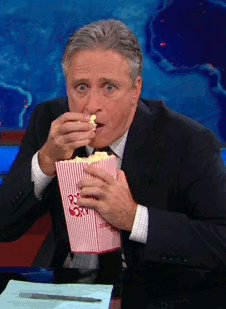I might be way off here, but having seen the film a few times I come up with a very different storyform. I’ll just put it in broad terms here just focusing on the OS.
OS: Fixed Attitude
I realize this is unusual for an action film, but all of the conflict here comes out of what people believe. Tony is convinced that superheroes need reigning in, Steve is convinced (partly from the events of Captain America: Winter Soldier) that the government can’t be trusted to determine his actions, Black Panther is so convinced that Bucky murdered his father that he doesn’t think before he tries to kill him. Zemo is convinced that the Avengers are to blame for his family’s death even though the evidence is actually that they had pretty much no choice in the matter. Colonel Ross, speaking on behalf of the American people (in effect) is convinced superheroes are a danger to society. Go up and down the line and a fixed attitude is always behind conflict, even in something as small as Vision and Scarlet Witch (he’s convinced that people’s fear will make her a monster in their eyes so he tries to keep her locked up.)
Take away any of these fixed attitudes – heck, just put them on pause for five minutes – and the inequity in the story could go away. It’s not until each character lets go of their fixed attitude that the story resolves itself: Tony realizes he’s been wrong about the Accords, Cap realizes he can’t be a rebel and still expect to carry the shield, Black Panther realizes that killing isn’t the answer (even refusing to let Zemo kill himself – despite now knowing it was Zemo who killed his father). Go up and down the line and the source of conflict is the set of fixed attitudes, all stemming from the one issue: should beings with super powers be allowed to walk around doing whatever they think is best.
This is why I think the overall concern is impulsive responses: Scarlet Witch’s impulsive response to stop the bomb leads to a number of deaths which sets up the basis for the accords. Zemo believes the Avengers’ impulsive responses made them utterly ignorant of the small lives they shatter along the way, Tony doesn’t trust his own impulsive responses because of his meeting with the mother of the dead son, and Steve is convinced that he is both responsible for and must trust in his impulsive responses as a hero.
I realize that you can’t look at one domain in isolation, so just quickly: MC is Steve Rogers (sorry, Jim, but nobody in the audience watching that movie – especially the writers, I would argue, given it’s called Captain America: Civil War, would think Tony is the MC). With a resolve of steadfast (he grows into his conviction that he must be free to act according to his conscience – so much so that he’s willing to give up the shield to do it.) The source of conflict for Steve comes from the things he’s doing: every action he takes comes back to bite him in the ass (as Tony so quickly shows him: the events from the opening scene, his attempt to keep the German cops from getting Bucky…etc. All of these aren’t simply actions in service of something, it’s the way Steve does things that creates conflict. I think his issue is Experience (specifically, his experience in the war and in recent events convinces him he has to be allowed to do things his own way.)
IC is Tony Stark, who’s constantly trying to manipulate Steve (and everyone else) to come to his side. Notice the kinds of promises and concessions he tries to make to get Steve to sign, but in the last instant, Steve sees this as manipulation, and thus hands him the pen back. Tony is motivated entirely by his desire for a better future – something we’ve seen time and time again with that character and he speaks of directly in the movie.
Finally, the RS is in situation: two friends are being pulled apart by the way the situation is getting out of control (Concern of How Things Are Changing). The problems between them stem from the way Tony wants to adapt to a changing world and Steve’s seeming inability to stop acting as if it’s still 1945.
So, I could, of course, be way off, but that’s how I see the structure. I can’t think of any other action movie I’ve seen where people spend so much time articulating their entrenched belief about something – and that being the direct impetus for their conflicts.
